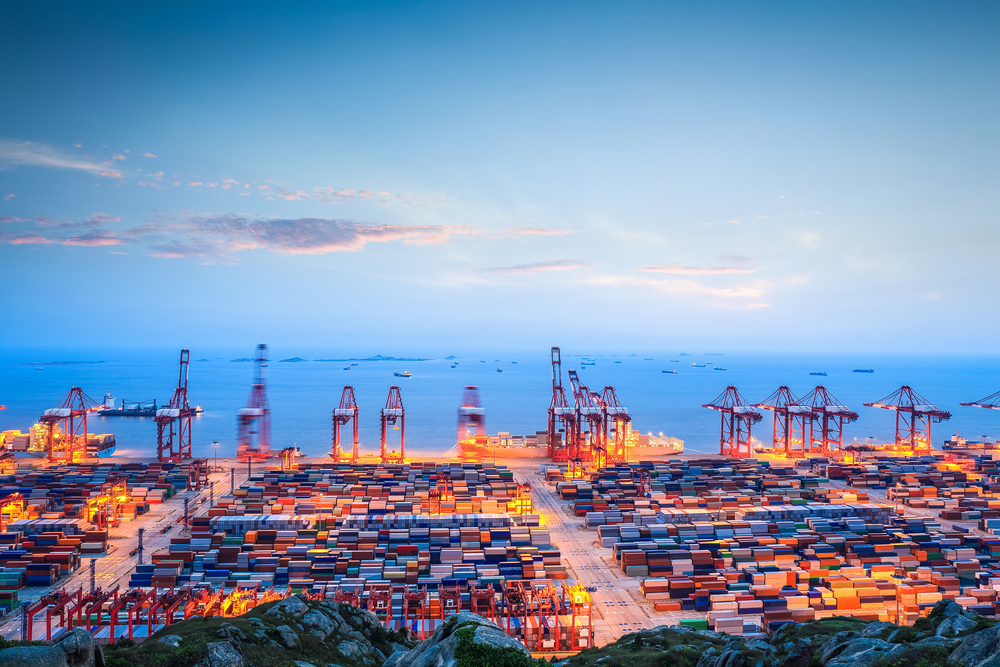Doug Irwin in his seminal book Free Trade Under Fire points out that Democrats and Republicans have historically vacillated on free trade. The Democratic Party of the late 19th century up until World War II was the party of trade liberalization when Republicans consistently voted for high tariffs. From the 1950s through the early ʼ90s, there was a bipartisan consensus favoring reduced tariffs.
Since NAFTA, a free trade agreement signed into law by President Bill Clinton, support for free trade among Democrats and Republicans has flip-flopped. Labor unions have generally opposed free trade agreements, which helps us understand the shift among Democrats. Republican president Donald Trump engaged in an all-out trade war with China and ran his presidency largely on an anti-free-trade agenda.
In modern conservative circles, free trade is continually mocked and rejected but not because of labor union objection. The conservative case against free trade stems from a mistake, shared by Democrats, that trade among nations is a zero-sum game. I was recently at a conference of conservatives in which two alarming statements were made: “You can either have free trade or free markets but not both,” and “Comparative advantage doesn’t work.”
As an economist, these are shocking statements, both because they are coming from conservatives, whom I expect to understand economics, and because they are glaringly wrong. When giving a reasoned economic response, I am sometimes labeled a “globalist,” which I suppose, reading between the hyperbolic lines, means I must hate America.
Nothing could be further from the truth. You can love your country and unapologetically support free trade at all times and under all circumstances. Free trade is about opening markets, and markets are about people. Ensuring the freedom to sell your ideas, labor, skills, and talents is the best way to love your neighbor by serving them.
Free trade is the world’s most successful anti-poverty program. It opens markets and brings goods and services heretofore both unavailable and unthinkable. Free trade widens the circles of cooperation and allows us both to benefit from and make contributions to human flourishing; this is our Christian duty. Free trade removes the shackles of subsistence farming and the grind of daily survival, and allows the possibility of human innovation and creativity to be shared across the globe. Free trade moves us out of the zero-sum game of survival of the strongest and into the positive-sum game where all parties win, and where we are empowered with new choices and opportunities. These facts are not new; they hark back to the insights of Adam Smith, who in 1776 wrote:
What is prudence in the conduct of every family can scarce be folly in that of a great kingdom. If a foreign country can supply us with a commodity cheaper than we ourselves can make it, better buy it of them with some part of the produce of our own industry, employed in a way in which we have some advantage.
We are a commercially integrated world, and that makes us all better. Free trade is the prudent course of action because it means that we each produce the things we are relatively better at doing. In this we actualize our temporal comparative advantages, and thus are freed from producing those things for which we would be higher-cost producers. This is the nature of stewardship, and it allows us to widen the circles of cooperation. If you are wearing a suit that you didn’t make, you are a living example of comparative advantage working.
Yet free trade and moving from more closed-trade relationships to more open-trade relationships bring great objections. British historian Thomas Babington Macaulay said, “Free trade, one of the greatest blessings which a government can confer on a people, is in almost every country unpopular.” Most of the conservative objections I hear to free trade focus on our current geopolitical relationship with China. Let’s face it, China is no bastion of free markets. Rather, it is a country ruled by authoritarians who hate freedom. That’s not just a bad thing for us; it’s bad for the citizens of China, all of whom are made in God’s image and likeness and have creative potential but live under the yoke of economic and political authoritarianism.
This is no excuse to abandon free trade with China; we need free trade with China now more than ever. Since 1980, with limited internal reforms, China has raised 800 million people from abject poverty. China has moved from “unfree” in the Economic Freedom data to “mostly unfree.” Some progress is better than no progress, and the future remains undetermined.
There is great work to be done in China, and the world watches with bated breath as their government engages in genocide and tyranny. But here is where the economic way of thinking becomes necessary. China needs free trade now more than ever. Our trade policy should be directed at how to trade with entrepreneurs in China while not supporting their government and its state-owned enterprises. We can hold the Chinese government accountable for its cheating and espionage without throwing the baby out with the bathwater. Creative regional trade policy can be part of the solution. But denying ordinary Chinese citizens a better life by denying them access to economic opportunity is never the answer.
Not too long ago, skeptics of free trade were worried that Japan was buying up the world and would have a larger economy than ours. What economics teaches us is that anytime a country makes internal changes in the direction of free markets, their economy will grow. That is a good thing, because as individuals in other countries grow richer, they have more money to spend on things we produce, and we have more entrepreneurs from which w, can benefit. I argue that this is what we want in China—more trade that allows Chinese citizens to grow richer. This is also the best deterrent to greater restrictions on freedom by the Chinese government.
Some worry that China’s economy will eclipse ours in size, to which economists respond, “I hope so.” China has a population that is 4.3 times as big as the United States. We should hope their economy is bigger. In a regime of free markets and political liberalism, this is an indicator of growing wealth and prosperity. Free trade frees people, and that is what China needs. Free trade will unleash human creativity. What we can and should do is support free trade with people wherever and whenever possible. It’s always time for free trade.

